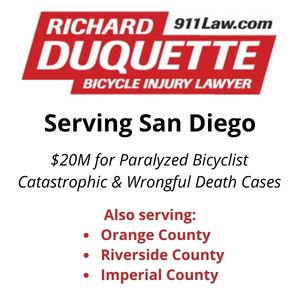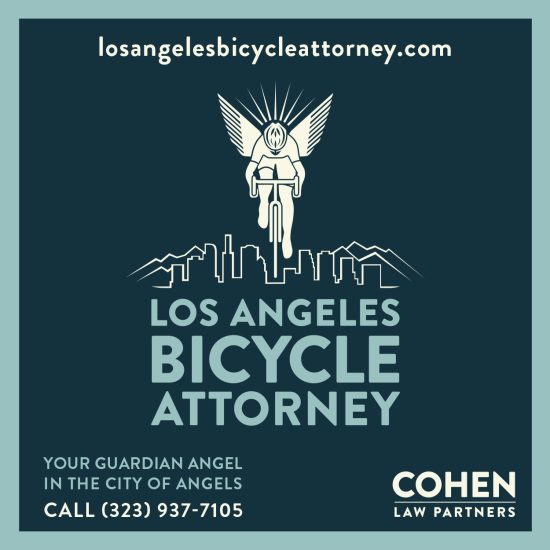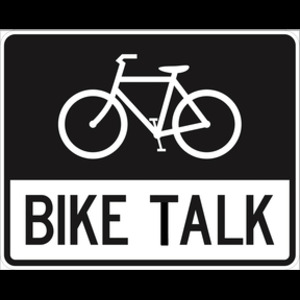A bike-riding college student is dead.
The driver who took his life faces a relative slap on the wrist.
And the campus where he was killed appears to be doing little or nothing to protect cyclists on campus.
Instead, Cal Poly Pomona seems to be hiding behind California’s devastating 85th Percentile Law to justify plans to raise speed limits on campus, making it even more dangerous for anyone on foot or two wheels.
Or at least, that was the gist of a Twitter conversation I had with representatives of the school Wednesday morning.
The outpouring of grief that followed the death of Cal Poly Pomona student and cyclist Ivan Aguilar should have spurred immediate action to tame what is reportedly dangerously out of control traffic on campus, where numerous students have reported feeling unsafe walking or biking.
Yet four months later, no changes have been made to protect students and faculty — not even on the street where Aguilar lost his life. And none are currently planned.
In fact, the school’s new 2013 traffic study doesn’t even include the words bicycle, bicyclist or pedestrian, according to a story by Beau Yarbrough in the Daily Bulletin.
Kind of makes it hard to make meaningful improvements when nothing is considered except speeding motor vehicle traffic flow.
Although to be fair, they have talked about bikes.
Key word being, talked.
But traffic plans that don’t even consider non-motorized transportation show just how out of touch campus leaders are. And how far the school has to go to make it safe for anyone, let alone everyone, whether on two feet, two wheels or four.
Apparently, those students are right to be afraid.
Especially when the death of a popular and promising young man leads to nothing more serious than a misdemeanor charge with a maximum penalty of just one year in county jail.
According to the Daily Bulletin, CPP Civil Engineering student Gonzalo Aranguiz Salazar will face a charge of misdemeanor vehicular manslaughter without gross negligence.
In other words, pretty much the mildest charge authorities could file under the circumstances, while still holding someone accountable for the death.
Is that justice?
I have no idea.
I’ve yet to see any description from any source of how the collision occurred. No word whatsoever on how fast the driver was going, or if he broke any traffic laws leading up to the impact with Aguilar.
Apparently, it’s on a need to know basis. And no one with knowledge of the investigation seems to think you or I need to know.
We’re just expected to accept that the charges are fair and appropriate given the top secret circumstances.
Sort of like we’re supposed to trust that campus administrators have the safety of their students at heart, on a campus that does not include a single inch of bicycling infrastructure.
Beverly Hills, meet your collegiate counterpart.
In all honesty, I’m not sure Salazar is the one who should be facing charges.
But you can’t charge a college with living in the auto-centric past and favoring motorists at the expense of every other road user. As much as it may be deserved.
But something tells me Cal Poly Pomona won’t make the list of bicycle-friendly universities anytime soon.
Update: Gottobike forwards a quote from American bike racer Ted King that seems oddly appropriate to this discussion:
It is impossible to find solutions when you’re busy making excuses.
And Boyonabike reminds me of something I let slide from the Daily Bulletin story about the Salazar charge, and shouldn’t have.
The story quotes Megan Chaney, director of Clinical Programs and Experiential Learning and Associate Professor of Law at the University of La Verne College of Law, explaining why a misdemeanor charge may be appropriate in this case.
“A lot of time when somebody plows into somebody in a crosswalk or an intersection, it’s just an accident,” Chaney said Wednesday. “We put the onus, the responsibility on the driver, not the pedestrian, unless they’ve done something really horrible….”
“You’re allowed to look at the radio; that’s why you’ve got a radio. You drop your water bottle and look down to pick it up,” she said. “You really weren’t acting with any sort of criminal culpability. “
That’s the problem.
As a society, we’ve chosen not to hold drivers responsible for all but the most extreme actions behind the wheel. The collisions that result from carelessness, distraction or relatively minor violations of the law are excused as mere accidents, and left for the insurance companies to deal with, with little or no consequences for the drivers involved.
And that’s why we continue to have 30,000 +/- deaths on American streets each year.
It may be the current legal standard.
But actions that result in the death or serious injuries of others should never be accepted. Or excused. Motor vehicles are, by their very nature, dangerous machines, and their operators can and should be expected to use the same caution behind the wheel that we expect from those involved in any other hazardous situation.
When life is taken more seriously than simple convenience on our streets, then — and only then — will anyone be safe on our streets.








